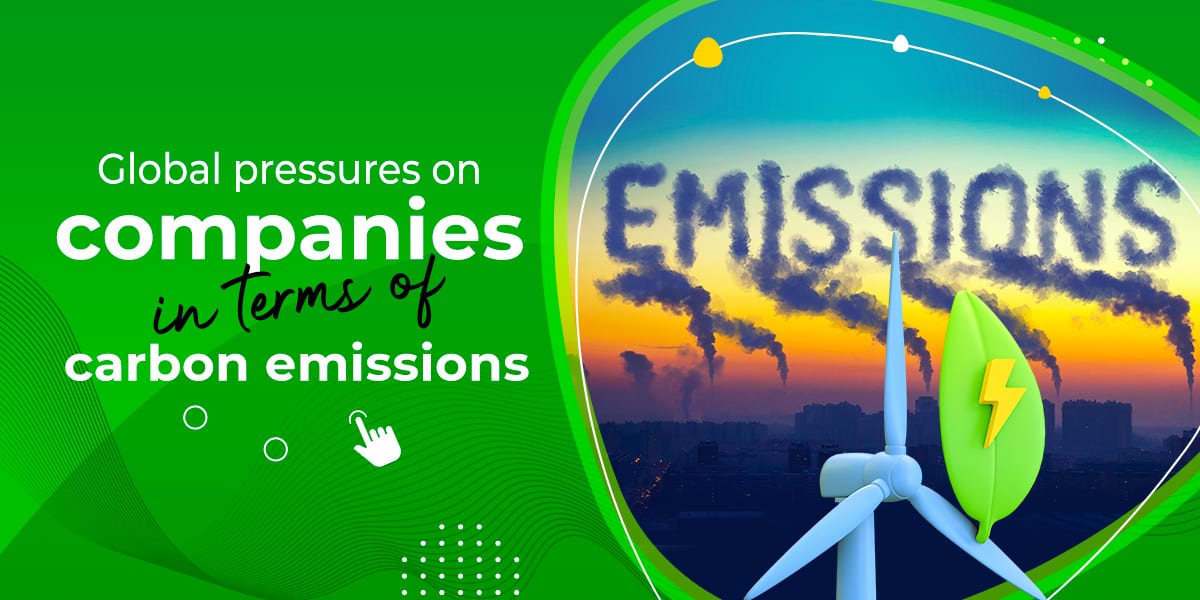Nowadays, you will often hear that climate change is the defining issue of our time. And with global temperatures already 1.1 degrees Celsius higher than pre-industrial levels, capping global warming at 1.5 degrees Celsius this century will require drastic action. According to the United Nations, carbon dioxide removal is paramount to achieving net-zero carbon emissions globally. The impetus is on negative emission technologies to radically drive down the world’s carbon footprint.
What does it mean to offset your carbon footprint?
There are countless reasons why halting greenhouse gas emissions is important for the future of the planet and humanity, but that’s easier said than done in today’s world. People can’t just simply opt out of air travel, or ordering products on the internet. That’s where the notion of offsetting your carbon footprint comes in. Carbon offsets are great both in theory and in practice.
Why is it crucial for companies to reduce their carbon emissions?
In 2006, the United Nation’s Principles for Responsible Investment introduced the concept of ESG as a required element for the financial evaluation of companies. ESG simply stands for Environmental, Social, and Governance. It provides a framework for measuring companies’ sustainability and the impact on risk and return on investments.
States and international organizations are increasingly promoting and adopting ESG policies as part of a larger push to reduce carbon emissions. Consumers are also becoming more aware of their own carbon footprints, choosing to invest in or buy products from companies that are implementing quantifiable measures to ensure sustainability. Unfortunately, ESG is not exempt from fraudulent behavior. Much more needs to be done to establish a transparent framework with guardrails for reporting and controls.
Can you become carbon neutral?
Becoming carbon neutral is no small feat. All over the world, people are feeling the externalities exacerbated by climate change while attempting to refocus their attention on actions they can take to minimize their carbon footprint. And companies that adapt to changing consumer demands are much more likely to succeed by repositioning themselves as leaders in the fight against rising temperatures. While individuals can take steps like investing in carbon offsetting projects to reduce their carbon footprint, companies are primarily responsible for providing a platform for sustainable, green energy initiatives.
By utilizing blockchain technologies, companies can reduce their carbon footprint while acquiring their customers’ trust. Restart Energy, a pioneer in democratizing Romania’s energy market, is now leading the fight against global warming on a much larger scale. Restart Energy’s RED Platform is the first decentralized platform on the market that helps individuals and companies reduce their carbon footprint and obtain tokenized carbon credits for implementing sustainable measures. RED Platform’s framework is incredibly easy to use and requires minimum overhead. RED’s blockchain-based decentralized energy trading supply platform also makes it easy to guarantee the origin of the green energy produced.
This is a defining moment in the fight against climate change and toward a better future. A recent study found that 85% of people around the world have intentionally shifted their behavior toward buying sustainable alternatives. However, goods production requires energy, and the most recent projection by the U.S. Energy Information Administration estimates that global energy demand will grow by 47% by 2050. Unfortunately, the energy sector has been plagued by an overbearing bureaucracy that slows innovation. But there is hope on the horizon. RED Platform can help companies accelerate their carbon emission goals transparently through blockchain technology.



